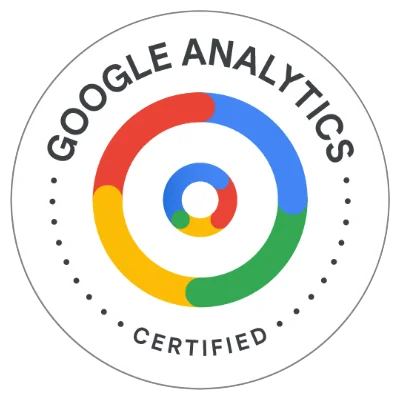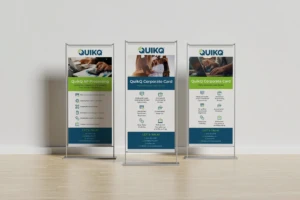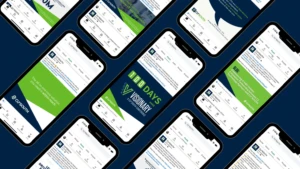October may be Cybersecurity Awareness Month, but the security of your businesses’ systems and data should get your attention every day of the year. Here’s why:
Almost 4,000 cyberattacks target businesses every day. By 2025, these attacks are projected to cause over $10 trillion in damages, solidifying their status as one of the most prevalent risks for businesses of all sizes.
However, the impact of cyberattacks can affect much more than a businesses’ finances. A significant cyberattack can cast a shadow over every facet of your business in multiple ways. Specifically, a cyberattack can wreak havoc on your PR and marketing efforts.
Let’s take a look at the significant connection between marketing and cybersecurity, and what steps you can take to shield your brand.
Why Cybersecurity is Crucial for Marketing
While cybersecurity and marketing may seem like two completely different worlds, good marketing hinges on robust security. That’s because weak security can obliterate your marketing efforts overnight.
One primary concern is the damage to your reputation following a data breach. Beyond the financial and legal turmoil, a data breach can tarnish your image.
Another associated issue is the loss of consumer trust, particularly when the compromised data belongs to your customers. No one wants their personal information stolen, and even if your product is top-notch, customers may be apprehensive about your business.
Additionally, compromised data can lead to flawed marketing decisions. Some cyberattacks involve corrupting or tampering with your data, which can be disastrous for data-driven, personalized marketing campaigns. Your relationship with customers, built on understanding their needs and how your business can assist, shatters when you start sending messages that show you hardly know them at all.
Tips and Tricks for Enhancing Cybersecurity
The internet never sleeps, and neither should your cybersecurity efforts. Think of security as a journey, not a destination. There’s always more you can do to safeguard your data and keep up with the evolving world of information security.
- Get a Review: Start with a third-party security review conducted by cybersecurity professionals. Their impartial expertise can identify weaknesses in your online presence.
- 2FA is the Way: Implement two-factor authentication for all your online accounts if you haven’t already. This makes it exceedingly difficult for outsiders to gain access to your data.
- Stay Updated: It’s imperative that you update your software regularly. Software updates are frequent because new vulnerabilities are discovered daily. Keeping your programs current helps plug the security gaps.
- Be Proactive: Identify potential vulnerabilities in your online presence, including social media, website logins and email accounts. Create strong passwords and do not repeat them across different environments or applications. Check for any suspicious logins from unfamiliar locations, which could be an indicator of a breach. Also, if you’ve hired someone to work on your website or social media, ensure their access is revoked upon project completion.
- Get Training: Establish security protocols and conduct company-wide training. Most cyberattacks still hinge on social engineering, like phishing. The best defense is an alert staff who can recognize threats, as modern phishing attacks have become increasingly sophisticated.
- Be Intentional about Data: Collect only relevant data for marketing purposes. Excessive data collection increases the risk of attracting hackers’ attention and complicates data protection.
- Stay Updated with Regulations: These rules exist to safeguard you, your customers, your business, and your reputation. Different legislation in the U.S. cover various types of data, such as HIPAA for healthcare data and PCI DSS for payment systems. Adhering to these regulations provides strong defenses against threats.
Even if you fall victim to an attack, you’ll appear more prepared and responsible if your data protection is up to par.
Turning Cybersecurity Risks into an Asset
From a marketing perspective, highlighting what you’re doing right, especially when competitors fall short, is always a good strategy. Many businesses lack adequate security measures to protect their operations and customer data. You don’t have to be one of them.
By maintaining a robust cybersecurity regimen, you can proudly emphasize this commitment in your customer communications. This is especially valuable if your business handles substantial amounts of customer data.
At Brand825, we believe every company deserves access to good marketing. Give us a shout if you want to discuss marketing strategies that will work well for your business … and your budget.
From blog posts to detailed marketing campaigns, Andy Goldstein obsesses over words. As Brand825’s Content Strategist, he enjoys writing under a deadline as much as he does formulating complete content strategies and recording streaming audio ads. Andy is an avid sports fan and enjoys getting outdoors with his two sons.











